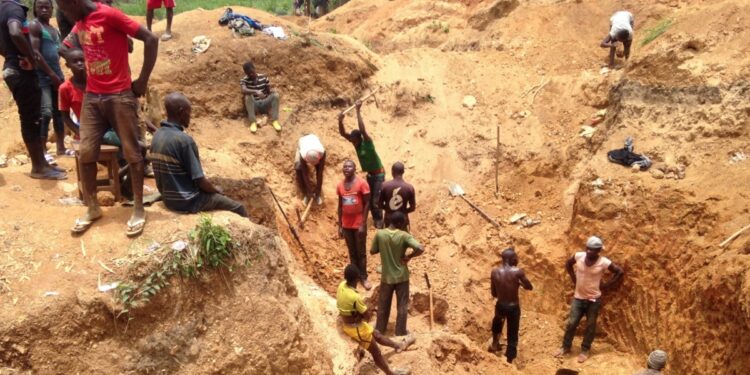By Ebi Kesiena
The authorities of the Boucle du Mouhoun, in the northwest of Burkina Faso, have ordered the closure of 43 gold mining sites for “security reasons”, as at Wednesday, in this region plagued by jihadist violence.
In an order published on Wednesday, Regional Governor Babo Pierre Bassinga, lists 43 artisanal gold mining sites in 13 communities that are closed until further notice.
According to a security source contacted in the region, the move was necessitated to reduce explosion on such sites.
“This response to the need to limit or even reduce to zero the traffic of explosives on these artisanal sites which are very often diverted to the benefit of armed terrorist groups
“It is also a question of drying up the sources of income of these groups, some of which hold to ransom the mining sites which are beyond the control of the state,” the source said.
Also, Bassinga stated that anyone contravening the provisions of the decree will face criminal sanctions.
About Boucle du Mouhoun Region
The Boucle du Mouhoun region, which borders Mali, is regularly hit by deadly attacks by jihadist groups linked to al-Qaeda or the Islamic State.
Despite an official ban on artisanal gold panning, which regularly causes deadly landslides, the Burkinabe authorities are struggling to control this unregulated exploitation, carried out by more than one million people, according to official figures.
In early February, at least 10 people were killed, when a small-scale gold mine in western Burkina Faso collapsed, according to officials of a gold miners’ association.
A year earlier, a dynamite stockpile exploded at an artisanal gold site in western Burkina Faso, killing about 60 people.
With approximately 70 tons per year, the production of legal gold mines has become Burkina Faso’s leading export product in a dozen years, ahead of cotton.
The artisanal sector generates additional annual production of about 10 tons of gold, according to the ministry of mines.
Burkina Faso, the scene of two military coups in 2022, has been caught since 2015, in a spiral of jihadist violence that began in Mali and Niger a few years earlier and has spread beyond those borders.
In seven years, the violence has left more than 10,000 civilians and soldiers dead, according to NGOs, and some two million people internally displaced.



































